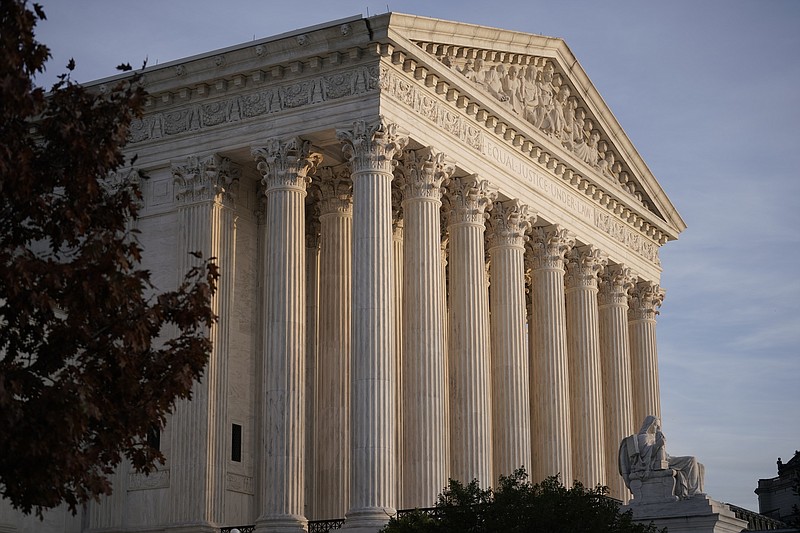WASHINGTON -- The U.S. Supreme Court has canceled this month's oral arguments in a case involving the Arkansas Works program.
The court provided no explanation for the decision.
The Biden administration, which opposes the Medicaid work requirements authorized by its predecessor, had requested the move.
It filed a motion last month asking the court to vacate lower-court rulings involving Arkansas and New Hampshire and send the underlying matter back to the secretary of the U.S. Department of Health and Human Services, citing "greatly changed circumstances."
Such a move would allow the new secretary to "determine the appropriate path forward," the U.S. Department of Justice said in a subsequent filing.
The administration had also requested that the March 29 arguments be taken off the court's calendar.
In a statement late Thursday, Arkansas Attorney General Leslie Rutledge said she was "disappointed by the Court's cancellation of the oral argument," but said the fight would continue.
Because of covid-19, the proceedings would have occurred via a telephone conference call, with the justices and the counsel participating remotely.
"Arkansas's program is important because it encourages personal responsibility while still providing healthcare coverage for those seeking gainful employment, and it's important to defend that program," Rutledge said.
Around 70 million Americans are covered by Medicaid, a roughly $600 billion program that covers many poor and disabled Americans, including many in nursing homes. Pregnant women and their newborns also benefit.
The federal government covered 64.4% of the cost for Medicaid in fiscal 2019, with the states covering the remainder, according to the Kaiser Family Foundation.
At issue are waivers that allowed the states to condition Medicaid, in some instances, on the recipients pursuing education, community service or work-related endeavors.
Under Section 1115 of the Social Security Act, the health and human services secretary can grant waivers for "experimental, pilot, or demonstration" projects that are "likely to assist in promoting the objectives" of the program.
The statutorily established objective of Medicaid is to "furnish ... medical assistance" for those "whose income and resources are insufficient to meet the costs of necessary medical services."
After Arkansas Medicaid recipients sued, U.S. District Judge James Boasberg of Washington, D.C., struck down the restrictions, saying then-Health and Human Services Secretary Alex Azar had exceeded his authority in approving the requirements.
On Feb. 14, 2020, the U.S. Court of Appeals for the District of Columbia Circuit said federal approval of the plan had been "arbitrary and capricious." In a unanimous three-judge appellate ruling, the court found that in approving the project without considering its effect on Medicaid coverage, the Department of Health and Human Services violated the Administrative Procedures Act.
In December, the U.S. Supreme Court agreed to hear Arkansas' appeal.
Last month, the Biden administration filed its motion, telling the court it had "preliminarily determined" that the work-related requirements would "not promote the objectives of the Medicaid program."
As a result, it was "commencing a process of determining whether to withdraw" approval for the waivers, the brief stated.
Early this year, in the closing days of then-President Donald Trump's term, his administration and Arkansas officials signed an agreement making it harder for the federal government to withdraw or modify its waiver.
Under the terms of the agreement, Rutledge wrote, any revocation cannot occur "until nine months after the agency gave Arkansas notice of its proposed revocation."
This is the fifth time since the Nov. 3 presidential election that the court has delayed or dismissed cases it had already agreed to consider, The Associated Press reported.
In February, the court canceled oral arguments in two immigration and border security-related cases after the Biden administration urged it to do so.
